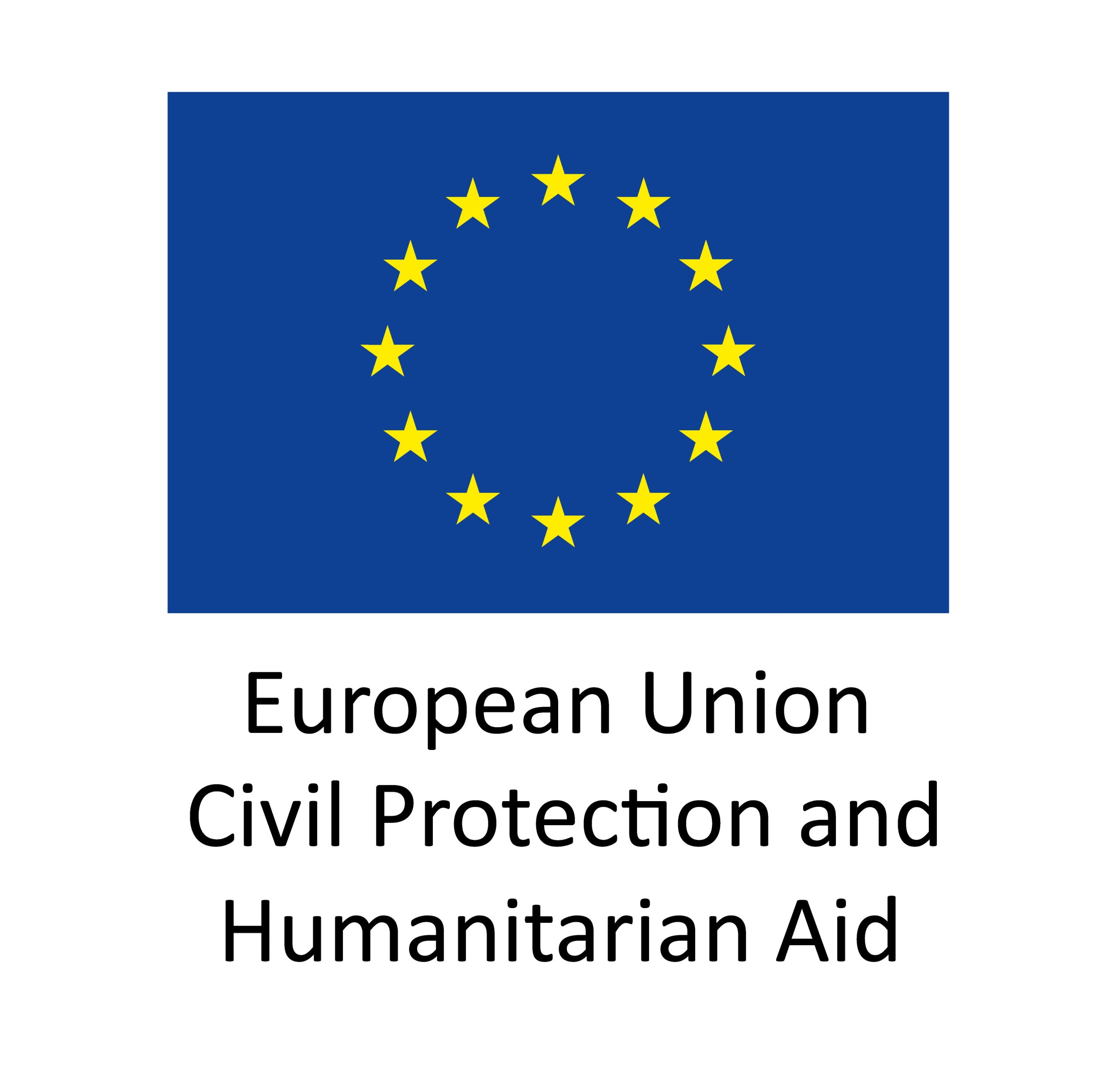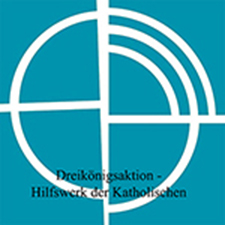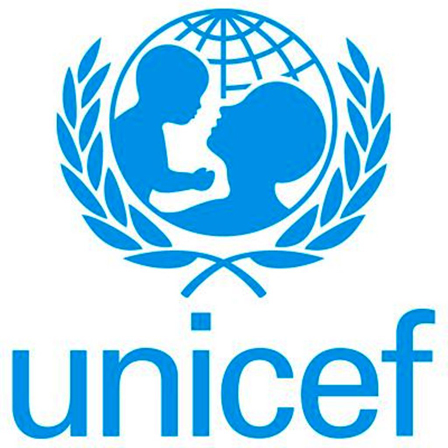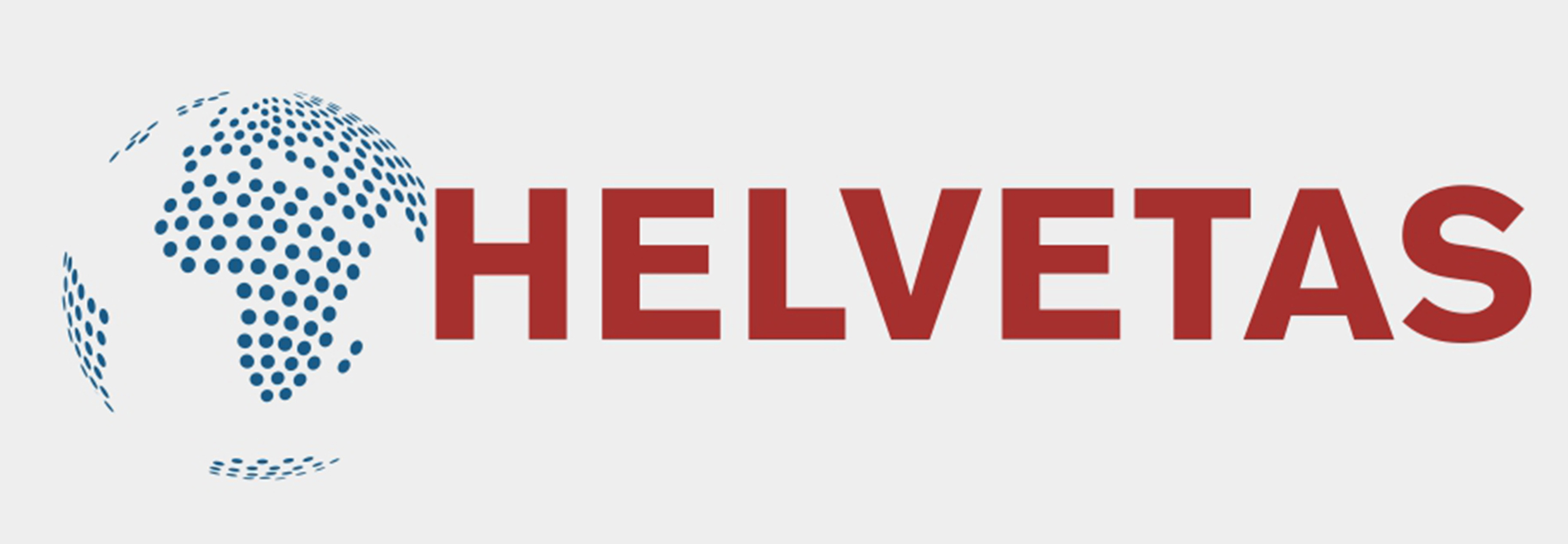Our Donor visited to villages in Amarapura townships where CAD is constructing bambo houses for Earthquaked affected families in Amarapura township.
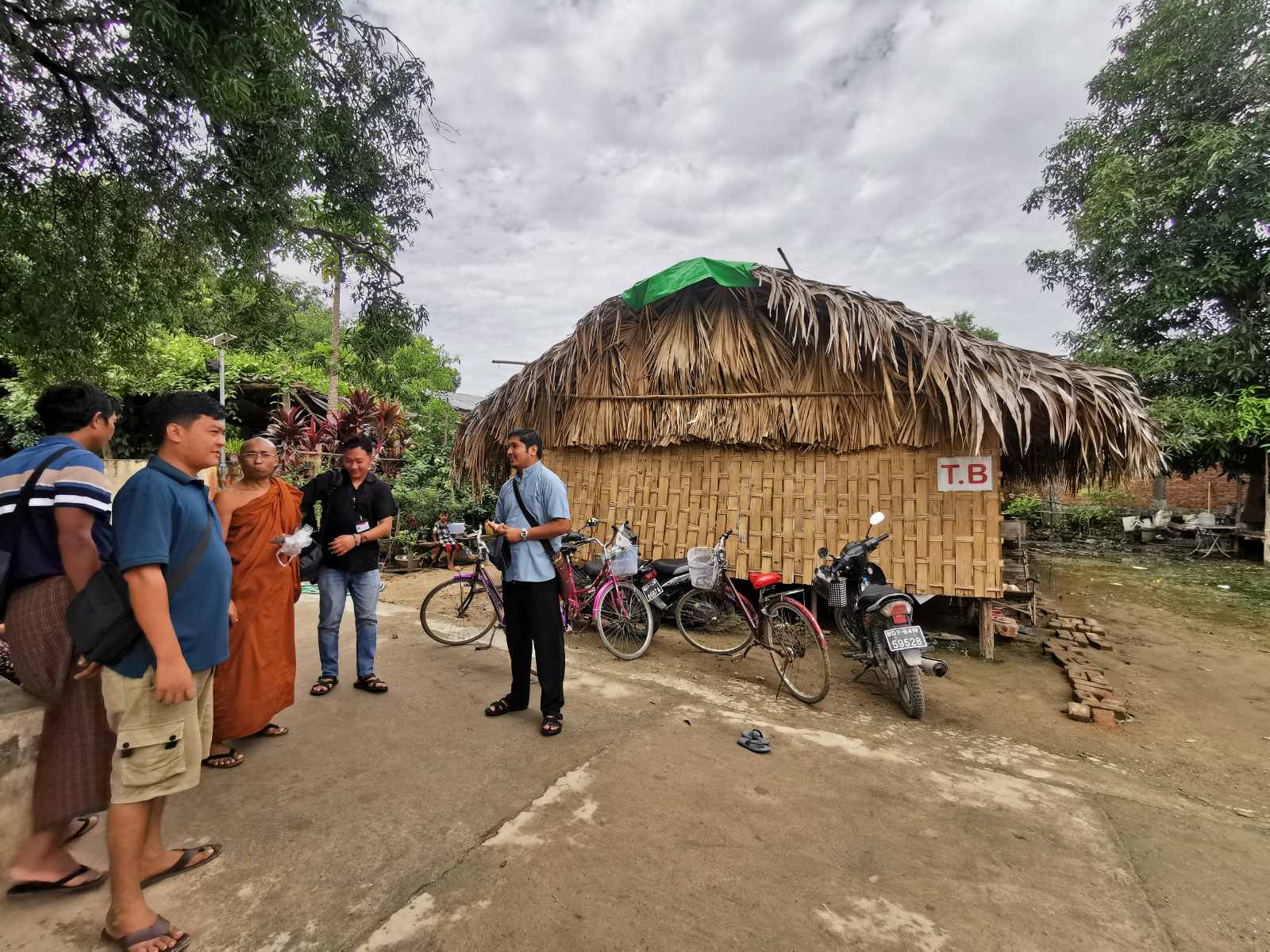
Donor’s visit of houses rebuilding for Earthquaked affected families in Amarapura township

CAD new Acting Director, Mr. Richard

Chin State is one of the states with the highest number of mortality rates in infants, under-5, and mothers, and with the highest chronic undernutrition status in Myanmar. According to the Integrated Household Living Conditions Assessment in Myanmar 2009-2010 of UNDP, Chin State has the highest poverty proportion in Myanmar since 73% of its population lives below the global poverty line. Transport is also limited in Chin State due to the bad topography with remote location.
Primary healthcare is still out of reach for most people in Chin State, one of the most remote, isolated parts of the country, where three-quarters of the people, who mostly depend on small-scale farming to survive, hover below the poverty line, said aid workers. To add, poor transport and the state’s rough terrain mean rural residents often have to walk for days to reach medical care in the nearest town. Some arrive close to death while others do not survive the journey. As healthcare is not easily available, many people rely on the traditional remedies for seasonal [monsoon] sicknesses.
With our own resources, CAD conducted a Rapid Survey of food-security and Living Conditions of people (FLSP) in Hakha township, Chin state in September 2024. During this survey, CAD staff interviewed 300 (male 156 (52%), female 144 (48%) villagers from 32 communities/villages. In big villages, we interviewed 10 households and in small village, we interviewed 1 household. In our assessment report, known as CAD (2024), here are the findings to be addressed.
CAD Overview Foodsecurity and Living Conditions in Chin State
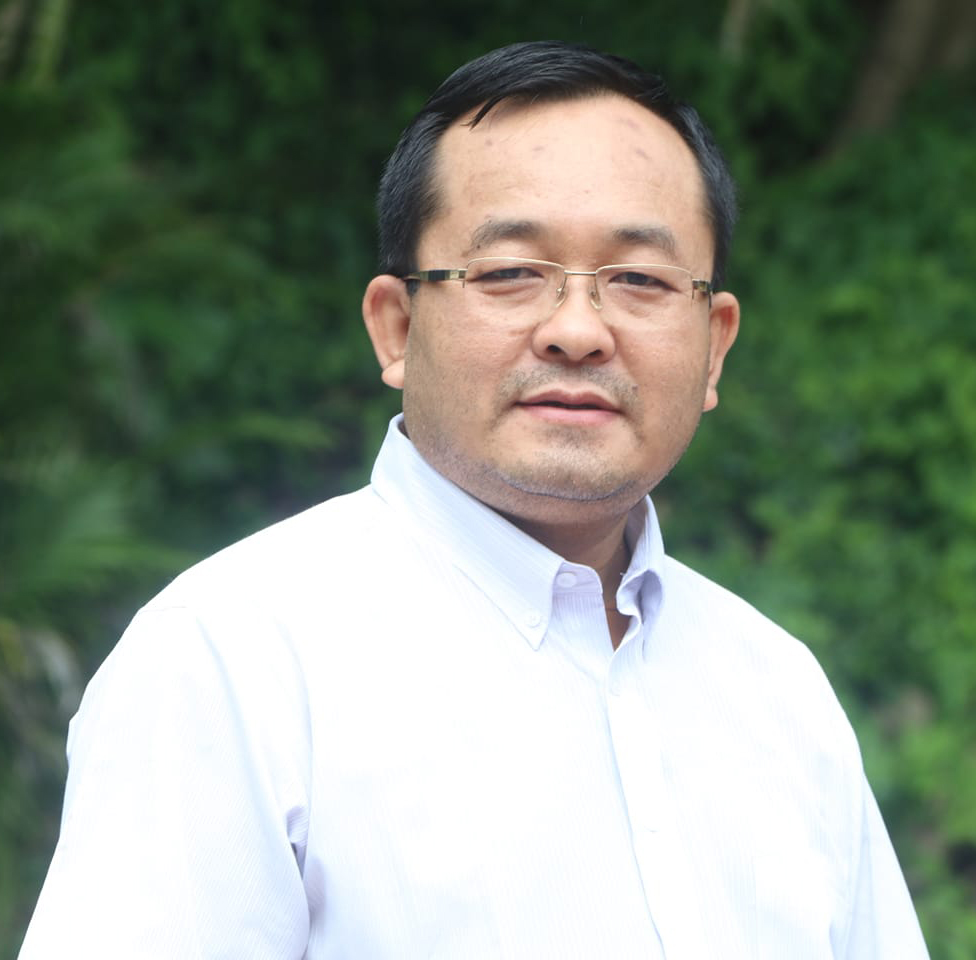
CAD Founder Joseph Win Hlaing Oo @ Kung Za Hmung
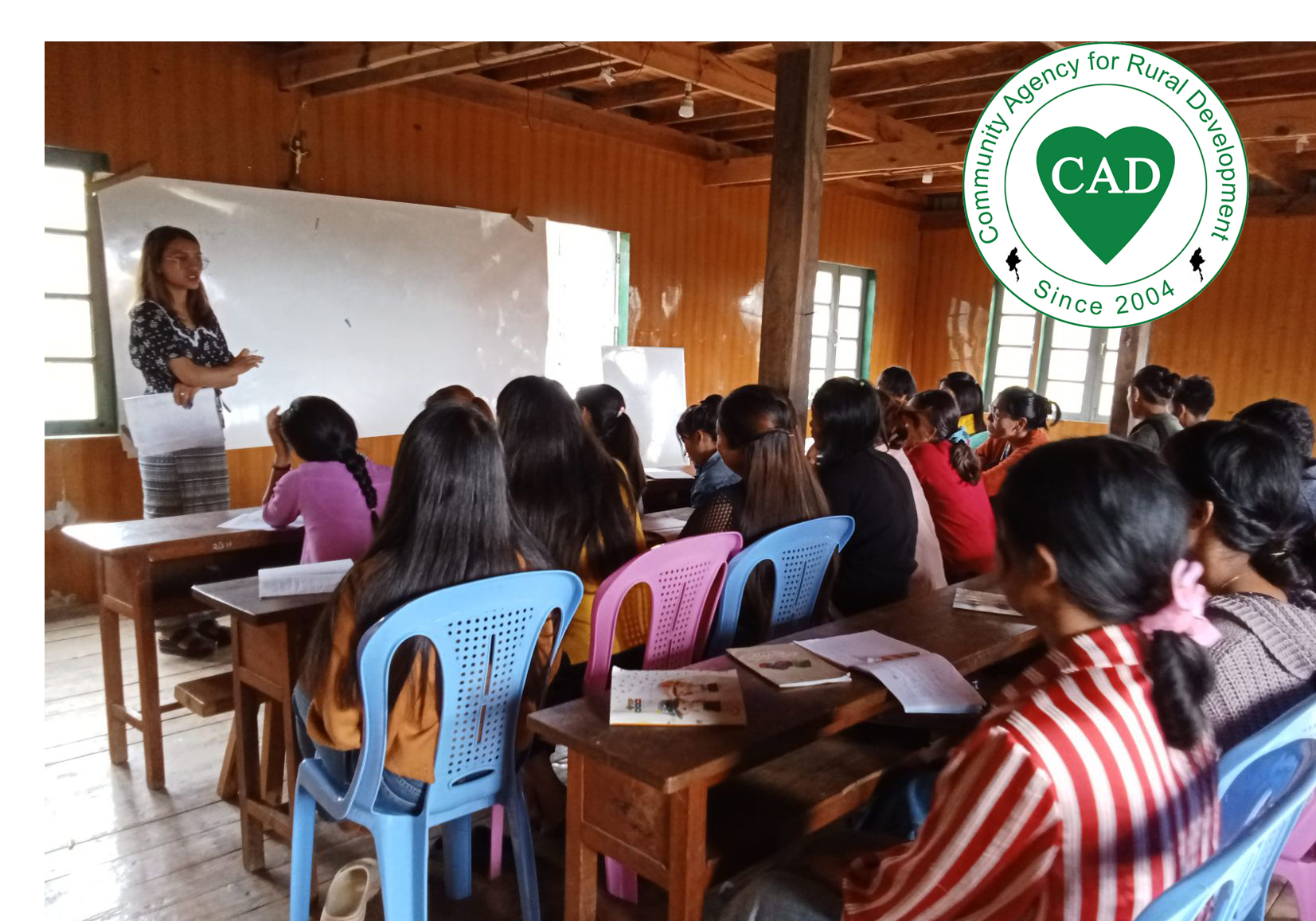
CAD is calling for application of project evaluation consultant to conduct an independent final evaluation of the CAD Project known as “Improving Education Access for Children in Mi-E (Me-Aye) area, Hakha Township, Chin state, funded by Myanmar Education Consortium – MEC.
CAD- Call for Applications of Project Evaluation Consultant
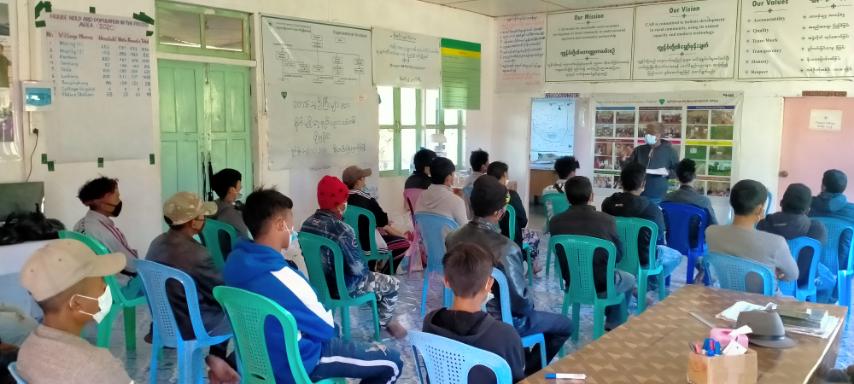
We are very happy to say that we have won the initial step of funding from Access to Health Fund for public health. We are excited to step up the final stage of submitting our full proposal to AHF very soon. Under this project, CAD is planning to implement Rights, Inclusion, Awareness and Services (RIAS) on SRHR for youth, old people and families. We were shared by young girls that they are in need of SRHR and utilities in their areas.
It is our great pleasure to release this information that CAD with its other (3) partners received funding from ECHO for implementation of Co-Learns Project in Sagaing and Magwe Regions for from 2022 to 2025.
Through this project, the Consortium members will provide education services to primary school-aged children affected by the conflict in 4 districts -Gangaw, Tilin, Myaung and Myinmu) located in Magway and Sagaing Regions.
The action will be led by Cesvi with Helvetas in Consortium. The field activities are implemented by 2 implementing partners: CAD (National NGO), which will cover 2 townships located in North-West Magway Region, and SNM (National NGO) that will cover 2 townships in Sagaing Region. This proposal is based on the agencies’ combined experiences, thematic and contextual knowledge, and on a need assessment, recently conducted, that shows an alarming exclusion of school-aged children from formal education due to the schools’ closure, compounded by widespread protection concerns. To respond to the identified needs, the action will ensure that primary school-aged boys and girls currently out of school will access non-formal education opportunities promoted at community level.
Dear All,
Please find the below CAD vacancy announcement for your information. It would be very much appreciated if you could kindly post an attached vacancy announcement on your office bulletin board or circulate it to every interested person.
Please click the link:
http://cadmm.org/wp-content/uploads/2022/06/CAD_Program-Manager.pdf
Today is the 19 Anniversary Birthday of CAD organization. Therefore I would like extend my Birthday wishes to all former CAD staffs and donors as well as our current CAD staffs and donors too. I am deeply indebted to you all for your all generous financial support and tireless works for community developments of our disadvantaged people in rural Myanmar.

With a collective request and decision of Lutuv Tribal Elders leaders for swift responding of possible Internally Displaced People in the central part of Chin State, Lutuv tribal area on 20 February 2022, CAD signed a Memory of Understanding with Lautu Internally Displaced People Management Committee (LIDPMC).

After giving refuge to about five hundreds of desperate displaced people from other regions since January 2022, at some villages in the Lutuv region, our regional leaders were convinced well that a solid preparation for possible huge-IDPs is necessary in our region. Such sudden arrival of displaced people from other villages to our region, make some Lutuv villagers shocked that they felt insecure and some Lutuv people also run to India border areas where thousands of Chin people are taking refuges in makeshift camps since September 2021. Actually there was never war between the army and militia in our area for the last 40 years.
Therefore LIDPMC was hereby set up by Lutuv Villages’ Elders of (12) Villages in Hnaring town on 27 January 2022 to provide swift assistances and humanitarian aids to Internally Displaced People from other regions and from other villages if such crisis would happen in our mother Lutuv region. The reason of setting us such committee is that after the Myanmar military overthrown the elected civilian government of National League for Democracy in 2020 election on 1 February 2021, intensive fighting between the army and local youth armed groups known as the Chinland Defense Forces – CDF, who are fighting for restoration of democracy and for eradication of military regime, have been occurring since March 2021 in Chin state. Such civil war has resulted exodus of thousands of local people from their villages to peaceful areas. Thousands of houses were either destroyed or burnt down and hundreds of local people were shot killed and arrested without any accountability by any party.
This LIDPMC was hereby set up by Lutuv Villages’ Elders of (12) Villages in Hnaring town on 27 January 2022 to provide swift assistances and humanitarian aids to Internally Displaced People from other regions and from other villages if such crisis would happen in our mother Lutuv region. The reason of setting us such committee is that after the Myanmar military overthrown the elected civilian government of National League for Democracy in 2020 election on 1 February 2021, intensive fighting between the army and local youth armed groups known as the Chinland Defense Forces – CDF, who are fighting for restoration of democracy and for eradication of military regime, have been occurring since March 2021 in Chin state. Such civil war has resulted exodus of thousands of local people from their villages to peaceful areas. Thousands of houses were burnt down and thousands of local people were shot killed and arrested without any accountability by any party.
We estimate that there are about 15,000 populations of Lutuv tribe around the world. The majority of Lutuv people are living in Thang Tlang and Matupi townships, the central part of Chin state, in Kalay township of Sagain region, but the minority in Yangon, in Australia, in United States of America, Europe, in Malaysia and India. 100% of the Lutuv tribe are Christians.
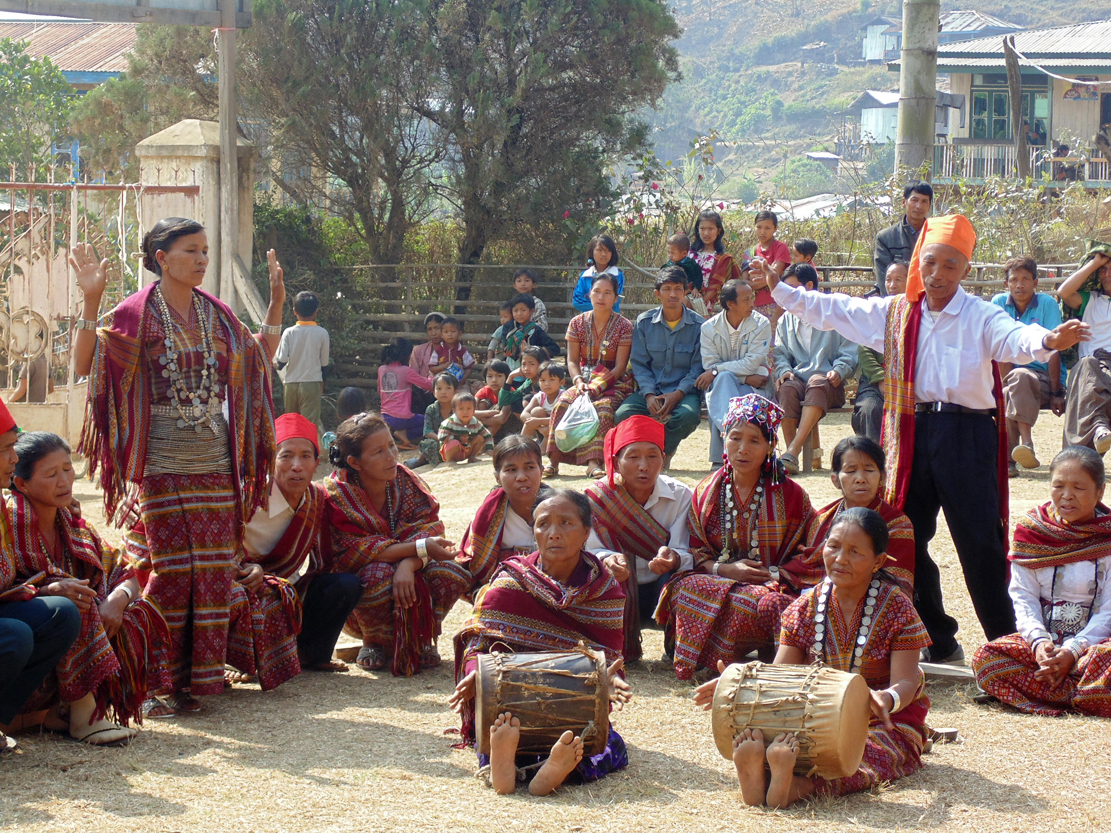
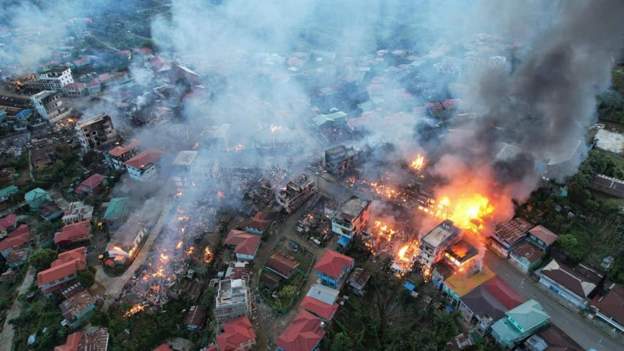
CAD and UNICEF signed a project contract agreement on 15 December 2021. The project is known as Small Scale Funding Agreement (SSFA) on Extended and Continuous Education and Learning for Out-of-School Children aged 10-17 year in Hakha Township, Chin State. The project will be begun from December 2021 to September 2022.

Continuing learning opportunity for children especially out of school children and adolescents have been disrupted during COVID-19 Pandemic. It is aggravated by the February 1st 2021 political crisis in Myanmar. The community based Extended and continuous education and learning (EXCEL) activities are conceptualized as an approach to equip adolescents with personal and interpersonal competencies to overcome the various challenges they face in everyday life through informed decision making. Through EXCEL, out of school children will have increased access and participation in non-formal education to develop necessary skills for their social protection and enhance reading literacy. Communities and parents will be mobilized and consulted to support children and adolescents learning. Community facilitators will be recruited from the same community with out of school children in the catchment areas to facilitate the training. Myanmar Literacy Resource Center will provide training and technical assistance to CAD’s staff and facilitators.
Community Agency for Rural Development (CAD) has speeded up humanitarian assistance to people of Thang Tlang City, who were finally run by intensive fighting between the Myanmar military and local militia known Chinland Defense Forces (CDF) since 20 September 2021.
Chin, a rural and mountainous state in Myanmar’s northwest which is among the country’s least developed, has become among the fiercest battlegrounds of resistance, along with Sagaing region to its north.
About 10,000 people normally live in Thantlang in Chin State, but most had left to seek shelter in surrounding areas including in India, a community leader said.
In India’s neighboring state of Mizoram, the head of a civil society group said 5,500 people from Myanmar had arrived in just two districts over the past week, as they scrambled to escape a military crackdown.Myanmar has been in turmoil since a government led by pro-democracy veteran Aung San Suu Kyi was toppled on February 1, sparking nationwide anger, strikes, protests, and the emergence of anti-junta militia.
During fighting last weekend in Thantlang, about 20 homes were set ablaze, with photographs on social media showing buildings engulfed in flames.
Soldiers shot dead a Christian pastor who tried to extinguish a blaze, the Myanmar Now news portal reported, although state media disputed the report.
The Global New Light of Myanmar said the pastor’s death was being investigated and that soldiers had been ambushed by about 100 “terrorists” and both sides exchanged fire.
Salai Thang, a community leader, said four civilians had been killed and 15 wounded in several weeks of conflict with the military also using air strikes after an army base was overrun.
The Chin Defense Force, a militia opposed to the military, said in a statement 30 soldiers had been killed.
Reuters could not independently confirm any of the claims and a military spokesman did not answer calls seeking comment.
A relative of the dead pastor told Reuters that only a handful of households remained in Thantlang, including about 20 children in an orphanage.
“The murder of a Baptist minister and bombing of homes in Thantlang, Chin State are the latest examples of the living hell being delivered daily by junta forces against the people of Myanmar,” Thomas Andrews, UN special rapporteur on human rights in Myanmar, said in a message on Twitter.
There has been an upsurge in bloodshed in areas like Chin State after the National Unity Government, a shadow underground administration set up by opponents of the military, declared an uprising on September 7 and called for newly formed militia to target the junta.
The attempts by the People’s Defense Forces to take on the well-equipped army have often resulted in civilians being caught in crossfire and forced to flee.
Community leader Salai Thang said he was deeply concerned about the displaced finding food and shelter.
In Mizoram, arrivals from Myanmar in the past week had mostly crossed the Tiau river by boat, the head of the Young Mizo Association, a civil society group, said by telephone.
“We have set up temporary shelters using tins (tin roofs) and tarpaulins to house these refugees purely on humanitarian grounds,” said Lalnuntluanga, who uses one name.
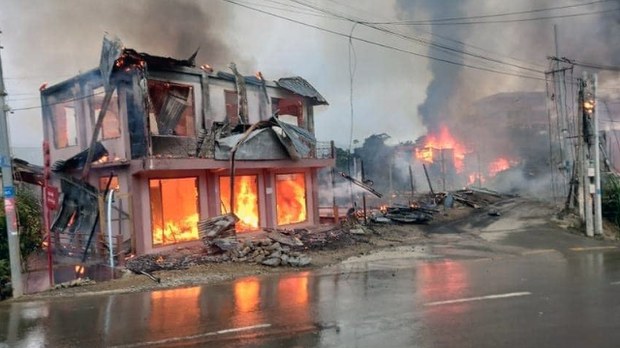
Myanmar’s currency has lost more than 60% of its value since the beginning of September, driving up food and fuel prices in an economy that has tanked since a military coup eight months ago.
Many gold shops and money exchanges closed on Wednesday due to the turmoil, while the kyat’s dive trended on social media with comments ranging from stark warnings to efforts to find some humour as yet another crisis hits the strife-torn nation.
“This will rattle the generals as they are quite obsessed with the kyat rate as a broader barometer of the economy, and therefore a reflection on them,” Richard Horsey, a Myanmar expert at the International Crisis Group, said.
In August, the Central Bank of Myanmar tried tethering the kyat 0.8% either side of its reference rate against the dollar, but gave up on Sept 10 as pressure on the exchange rate mounted.
The shortage of dollars has become so bad that some money changers have pulled down their shutters.
“Due to the currency price instability at the moment…all Northern Breeze Exchange Service branches are temporarily closed,” the money changer said on Facebook.
Those still operating were quoting a rate of 2,700 kyat per dollar on Tuesday, compared to 1,695 on Sept 1 and 1,395 back on Feb 1 when the military overthrew a democratically elected government led by Nobel Laureate Aung San Suu Kyi.
Wolrld Bank warns economy to slump 18%
The World Bank predicted on Monday the economy would slump 18% this year and said Myanmar would see the biggest contraction in employment in the region and the number of poor would rise.
The increasing economic pressures come amid signs of an upsurge in bloodshed, as armed militias have become bolder in clashes with the army after months of protests and strikes by opponents of the junta.
“The worse the political situation is, the worse the currency rate will be,” said a senior executive at a Myanmar bank, who declined to be identified.
Myanmar is also struggling to deal with a second wave of coronavirus infections that started in June with the response by authorities crippled after many health workers joined protests. Reported cases have comes off their highs though the true extent of the outbreak remains unclear.
In the immediate months after the Feb. 1 coup, many people queued up to withdraw savings from banks and some bought gold, but a jewellery merchant in Yangon said many desperate people were now trying to sell their gold.
The central bank gave no reason to why it abandoned its managed float strategy earlier this month, but analysts believe its foreign currency reserves must be seriously depleted.
Central bank officials did not answer calls seeking comment, but World Bank data shows it had just US$7.67 billion in reserves at the end of 2020.
After coming off its managed float, the central bank still spent $65 million, buying kyat at a rate of 1,750 to 1,755 per dollar between Sept 13-27.
The bank executive said the central bank’s efforts had limited impact in a currency market shorn of confidence.
The economic crisis has driven up the price of staples, and the UN Office for the Coordination of Humanitarian Affairs said this week that around three million people now require humanitarian assistance in Myanmar, up from one million before the coup.
In a country where gross domestic product per capita was just $1,400 last year, a 48-kg bag of rice now costs 48,000 kyat, or around $18, up nearly 40% since the coup, while gasoline prices have nearly doubled to 1,445 kyat per litre.
“If you have money, you buy gold, you buy dollars, you buy (Thai) baht. If you do not have money, you will starve,” said Facebook user Win Myint in a post.

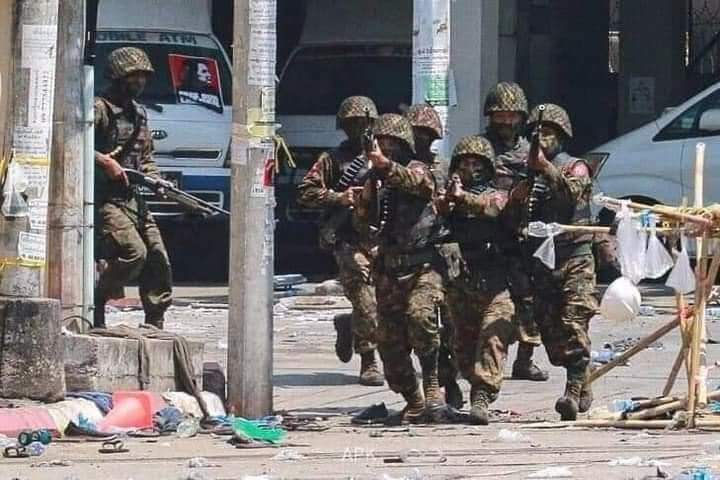
As Myanmar Military ousted the elected democratic government of National League for Democracy on 1 February 2021 and the whole country is under the State Emergency of Military rule led by Senior General Min Aung Hlaing under the de facto name of State Administration Council, we are under curfew and martial law. We witnessed our staff lives are highly at risk and banking system are almost dysfunctional in Myanmar too. Therefore, CAD, after having well discussion with our donors, decided to stop our projects implementation in 2021.
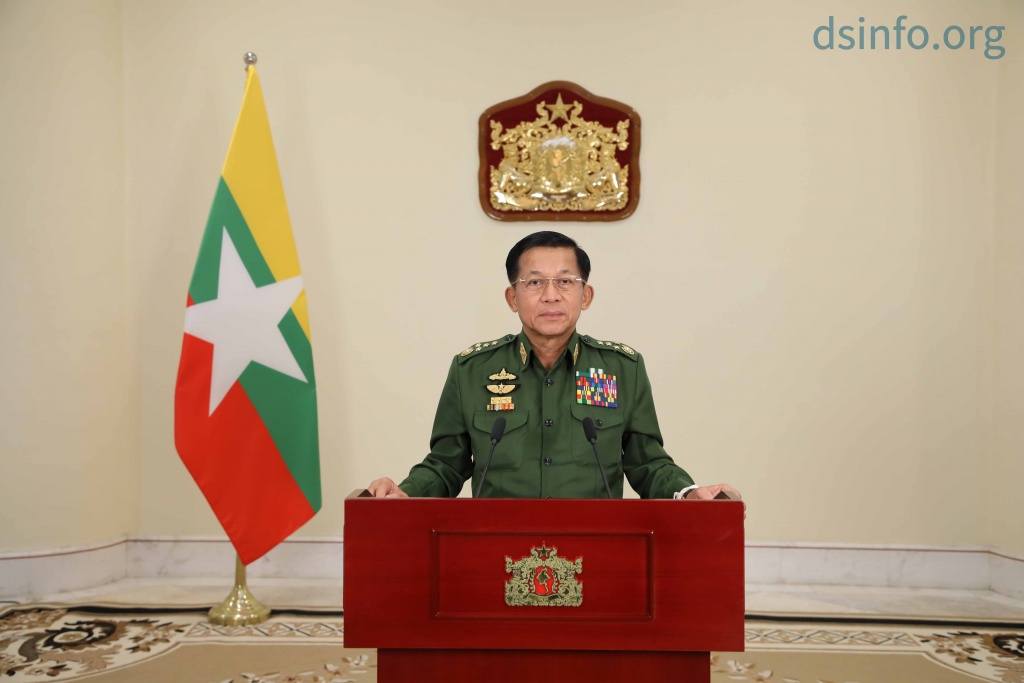
CAD is joining Myanmar government in fighting against Covid-19 Pandemic virus since May 20, 2020. As CAD is the first actor of Chin NGO in Chin state, the poorest region of Myanmar, since 2004, it is responding Covid-19 virus fight against communities and our government.
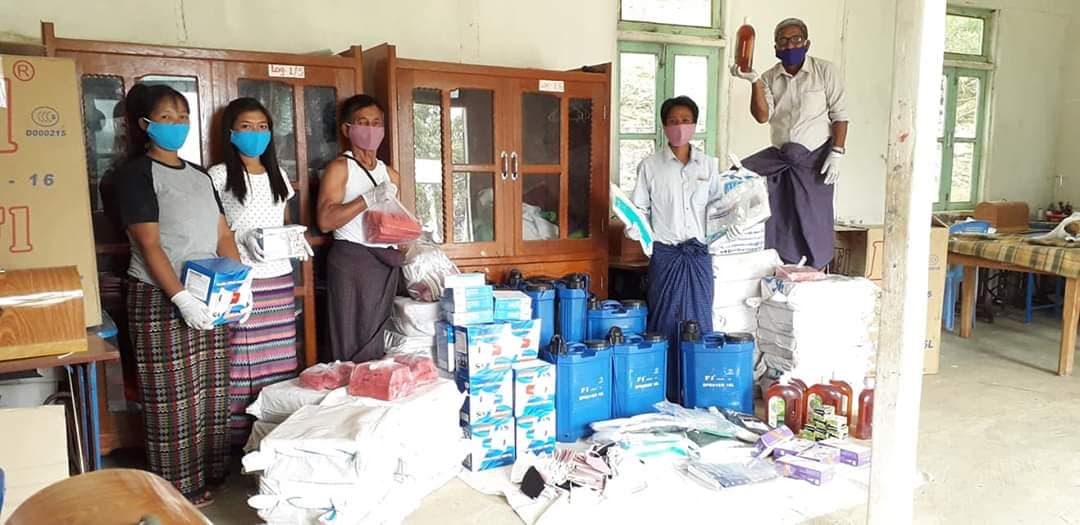
Therefore, CAD had spent its available resources of US$ 12,000 (local currency Ks. 15,000,000) to reduce, to contain the spread of Covid-19 pandemic in our project areas by distributing IEC posters (2000 copies) to 2000 families with tri-languages for the most effective education of Virus awareness by communities, distributing 10000 numbers of soaps to our people, distributing 3000 numbers of special tailored masks to 3000 people, distributing PPEs to village based health volunteers, helping community quarantine centers, providing water resources to the needy and rural health care centers and finally medicines to villagers of locked-downed communities in the central part of Chin state.
CAD had assisted 22 villages of reaching out about 10,000 people in Hakha, Thang tlang and Matupi townships of Chin state, Myanmar. Chin is the poorest state in Myanmar and it has a low population density with limited infrastructure development. This has contributed to a lack of agricultural development and market integration, along with significant out-migration as a result of limited opportunities to diversify livelihoods.
Since 2004, CAD has invested more than US$ 1 million in improving living standard of communities, transforming their agricultural system, building car road connectivity, improving their drinking water system, educating their health awareness, reducing community harm reduction by building bridges and roads, making education available in their communities by building schools and by supporting their village led-nurseries and empowering illiterate youth by opening higher vocational training program in Chin state.
The Coronavirus outbreak actually began in Wuhan, a city in the Hubei province of China. Reports of the first COVID-19 cases started in December 2019. World Health Organization named the virus as Covid-19 and it declared it as Pandemic in March 11, 2020. Corona-viruses are common in certain species of animals, such as cattle and camels. Although the transmission of coronaviruses from animals to humans is rare, this new strain likely came from bats, though one study suggests pangolins may be the origin.
The World Health Organization (WHO) has officially declared the outbreak of COVID-19 a pandemic, after the disease caused by the new coronavirus spread to more than 100 countries and led to tens of thousands of cases within a few months. “We are deeply concerned both by the alarming levels of spread and severity [of COVID-19], and by the alarming levels of inaction,” Tedros Adhanom Ghebreyesus, the director-general of WHO, said at a news conference on today (March 11). “We have therefore made the assessment that COVID-19 can be characterized as a pandemic.” This is the first time WHO has declared a pandemic over a coronavirus, Ghebreyesus said. He noted that the number of COVID-19 cases reported outside China has soared in recent days, rising 13-fold in the past two weeks. However, it remains unclear exactly how the virus first spread to humans. Some reports trace the earliest cases back to a seafood and animal market in Wuhan. It may have been from here that SARS-CoV-2 started to spread to humans.
We are very happy to share you that OBOS which is a Catholic faith based funding agency in Seoul, the Republic of South Korea, approved recently our development program proposal for people in Chin state, Myanmar. Actually, OBOS has already been giving funding to CAD since 2009 till today. The total funding of OBOS to CAD for people in Chin State, Myanmar has totaled US$. 1.5 million in (10) years. Living standards of thousands of local people in remote areas have being uplifted too. From her 15 years’ experience with different donors/funding agencies, CAD finally concluded and believes that OBOS is the most stable and committed funding agency in the world.
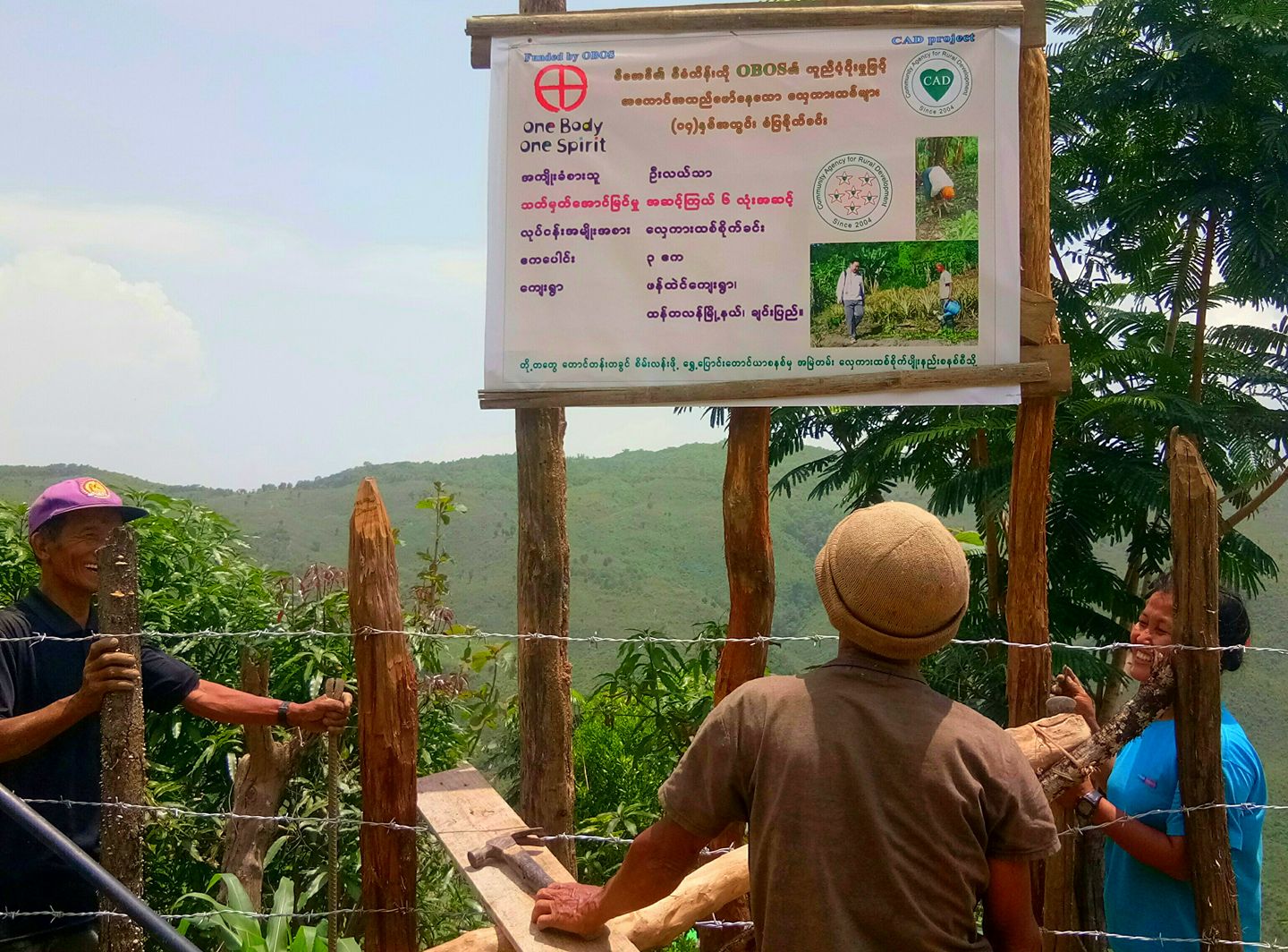

We are very happy to share you that DKA-Austria which is a Catholic faith based funding agency in Austria, approved recently our development program proposal for people in Chin state, Myanmar for (3) years from 2019-2021.
Community Agency for Rural Development (CAD) is one of five Myanmar NGOs (Not-for-profit non-governmental organizations) established by few individual persons in Myanmar during 2000-2004 under the Burmese Military rule (State Law and Order Restoration Council) led by Senior General Than Shwe. CAD is registered to Union Ministry of Home Affairs of the Union of Republic of Myanmar. CAD registration/License number is 1/Local/1850 which is valid till 2023.

In rural and hard-to-reach areas, community members’ heavy reliance on traditional and informal health practitioners can lead to delayed attendance at health centres, and people not receiving the health care they need at the right time.
In Chin State, one of the poorest states in Myanmar, 72 per cent of people in Thantlang villages and 54 per cent in Hakha said they first turn to an informal practitioner in a health emergency.* One Collective Voices participant from Hnaring Village said that although villagers knew the quacks were unrecognized and not government trained, they are available when they are needed. “Even at midnight they come to our home,” she said.” They provide us with medical services and we can pay for it later when we have money.”
Ensuring these practitioners can identify when a patient needs to be referred on to further medical care can make a crucial difference in health outcomes, even the difference between life and death in some cases. A conference held by 3MDG Collective Voices partner Community Agency for Rural Development (CAD), focused on improving the knowledge of informal health care providers – when to refer, how to detect emergencies, and how to apply basic first aid. The conference, which was the first of its kind, brought together formal and informal healthcare providers for the first time in Hakha, Chin State on 31 March to 1 April 2016.
Organized in collaboration with the State Public Health Department, the conference was attended by the State Health Department’s Assistant Director, State Health Officer, Public Health Supervisor, and 27 traditional and informal practitioners from 19 villages of Hakha and Thantlang. To ensure participation and understanding, the conference was conducted in local Chin language.
Participants discussed the important role that informal health service providers can play in referring community members to appropriate health facilities for timely and effective treatment. In addition, the informal service providers themselves learned more about health problems, common diseases in the community and danger signs for emergency cases from conference facilitators from the State Health Department.
According to U Van Tin Hup, Public Health Supervisor:
“I appreciate Community Agency for Rural Development (CAD) for organizing this conference and 3MDG for providing funding support, because the public health service cannot offer strong coverage to remote villages, so people in the villages often use informal healthcare providers who have limited health knowledge. The Ministry of Health now has the chance to improve the knowledge of quacks on healthcare services, including the “do’s and don’ts.” I hope this conference will help them provide first aid and referral services.”
This conference is part of the 3MDG’s broader efforts to contribute to better health for all in Myanmar through a responsible, fair and inclusive health sector. 3MDG is partnering with 25 Civil Society Organizations (CSOs) to improve the understanding of the social factors limiting access to health care, as well as to support a meaningful participation of community members for better services and consumer satisfaction. This initiative is called “Collective Voices: Understanding Community Health Experience.”

A German medial student, Ms. Johanna Graebner was given a farewell by CAD staffs in Yangon Head-Office on 5 August 2016. During her one month volunteering work in CAD organization from July 4 to 5 August, she was assigned to look for new donors from Yangon based business companies and people. With her tireless work for CAD, we have received different companies which are willing to work with us on their CSR (corporate social responsibility). We are grateful to her for her efforts for us and we are willing to welcome more volunteers across the country and the world.
With financial support of BAT, CAD conducted township-wide livelihood survey in Natogyi township, Mandalay region from 20 to 26 July 2016. The finding report of this survey will be published in August.
The long-awaited figures on religious affiliation from Myanmar’s 2014 census were released on 21 July 2016. According to the figures released, Buddhists compromise 87.9 percent of Myanmar’s population, a decrease of 1.5 pc over the past 30 years. The release also reported 6.2 pc of the population as Christian, 4.3 pc Muslim and 0.5 pc of Hindu out of a total estimated population of 51.4 million. The census also identified 1.2 million people not enumerated, including over 1 million in Rakhine State alone.
Myanmar’s previous census in 1983 demarcated 4.9 pc of the country’s population as Christian and 3.9 pc as Muslim, meaning there has been a slight slight increase in major non-Buddhist populations in the past 30 years. The Hindu population was also reported at 0.5 pc in 1983. “It seems that data on the numbers of people not collected in Rakhine State are Muslims,” U Thein Swe, Union Minister for Labour, Immigration and Population said in Nay Pyi Taw, referring to the over 1 million residents of Rakhine State that were not enumerated in the census. Before releasing the census religion data, the Ministry conferred with representative religious organisations. While most of the census data was released last year, data on Myanmar’s population by religious and ethnic composition was withheld due to fears of inciting sectarian tensions during the country’s landmark November election and subsequent political transition to the National League for Democracy government.
“We will release the numbers on religion and we have already prepared to release it. We had planned to release these remaining data since the previous government, but it coincided with the transition period,” Ministry of Labour, Immigration and Population permanent secretary U Myint Kyaing previously told The Myanmar Times.
Figures on Myanmar’s Muslim population were also widely believed to double previous estimates, or account for as much as 8pc of Myanmar’s population. This prediction was not authenticated by today’s release, which pegged Muslims to account for only 4.3pc of the total population.
The long-awaited figures on religious affiliation from Myanmar’s 2014 census were released on 21 July 2016. According to the figures released, Buddhists compromise 87.9 percent of Myanmar’s population, a decrease of 1.5 pc over the past 30 years. The release also reported 6.2 pc of the population as Christian, 4.3 pc Muslim and 0.5 pc of Hindu out of a total estimated population of 51.4 million. The census also identified 1.2 million people not enumerated, including over 1 million in Rakhine State alone.
Myanmar’s previous census in 1983 demarcated 4.9 pc of the country’s population as Christian and 3.9 pc as Muslim, meaning there has been a slight slight increase in major non-Buddhist populations in the past 30 years. The Hindu population was also reported at 0.5 pc in 1983. “It seems that data on the numbers of people not collected in Rakhine State are Muslims,” U Thein Swe, Union Minister for Labour, Immigration and Population said in Nay Pyi Taw, referring to the over 1 million residents of Rakhine State that were not enumerated in the census. Before releasing the census religion data, the Ministry conferred with representative religious organisations. While most of the census data was released last year, data on Myanmar’s population by religious and ethnic composition was withheld due to fears of inciting sectarian tensions during the country’s landmark November election and subsequent political transition to the National League for Democracy government.
“We will release the numbers on religion and we have already prepared to release it. We had planned to release these remaining data since the previous government, but it coincided with the transition period,” Ministry of Labour, Immigration and Population permanent secretary U Myint Kyaing previously told The Myanmar Times.
Figures on Myanmar’s Muslim population were also widely believed to double previous estimates, or account for as much as 8pc of Myanmar’s population. This prediction was not authenticated by today’s release, which pegged Muslims to account for only 4.3pc of the total population.
Our main and strong donor: One Body One Spirit Movement (OBOS) had paid a visit to our head-office on 21 June in Yangon, Myanmar. OBOS has been supporting Chin regional holistic development programs for the poor in remote areas in Chin state, Myanmar since 2009. CAD is always grateful to OBOS for her stance for our growth.
CAD is very pleased to share and report a great news that a woman, bitten by a viper snake, was saved from death by our medicine in Oak Pho village. Her name is Ms. Khine Mar Win, daughter of U Tin Shwe and of Daw Tin Yee.
She was bitten by a viper on 15 July at about 8:30 a.m. and was carried to our medicine bank where two bottles of medicines were injected to her by a health assistant whose name is U Tan Ngwe. After receiving the first aid of our medicine, she was transferred to another 2 township hospital where another 12 numbers of venom were injected to her again and finally to Mandalay hospital to check her kidney if it is affected by the poison of the snake.CAD got phone calls from the villagers expressing their joyful feelings and gratitude to CAD and to Czech embassy for saving her lives. The aforementioned news information was posted in the facebook account name: Aung Myint Thaung Yeu
